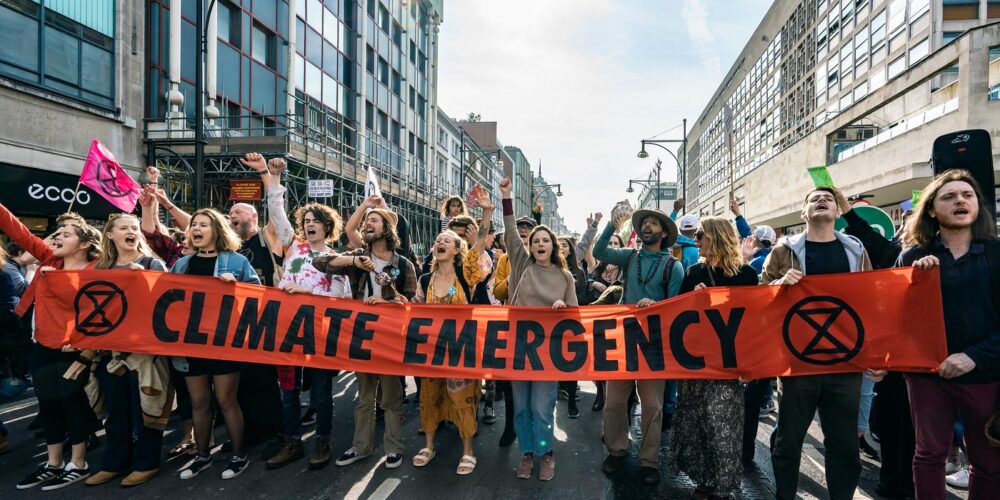In June, RTÉ’s Hot Mess podcast featured an interview with Roger Hallam. In the weeks to come, Hallam, co-founder of Extinction Rebellion and Just Stop Oil, would have received the longest ever sentence for non-violent protest in front of a British court. The sentence was on the charges of “conspiracy to cause a public nuisance”, coordinating direct action protests on a motorway.
When asked why is his group not going against those that directly profit from not taking climate change mitigation measures, i.e. the capitalist shareholders of the fossil fuel economy, Hallam replied that: “what you have to do, when society is addicted to injustice, is challenge the whole of society.” Hallam argued that actions targeting fossil fuel companies and their financiers do not remain in the media and the public eye, while those on the motorways had a prolonged effect.
Meanwhile in Ireland, the discontent with “green” policies grows. Let us take an example many can relate to these days, that of plastic bottle recycling. The introduction of the deposit return scheme earlier this year saw shops install automated deposit machines for disposal of bottles and cans, as well as the addition of a deposit to the price of drinks. In a very abstract vision of the policy’s implementation, every bottle gets returned via the machines and the customers get every cent of their deposit back, while ensuring that the bottles get recycled.
While this article is not an analysis of particular issues around this scheme, we can list some of them. The machines break down easily, to the frustration of the customers who often bring in a big bag of bottles from their household to recycle in one go. That leaves them with the option of taking the bottles back home and trying again some other time, or just binning them, while the latter option creates a striking visual of a full bin next to a broken machine. Of course, the frustration over broken machines extends to workers in the shops, who have nothing to do with this machinery brought into their place of work. Furthermore, the idea of a private company striking a deal to conduct a state-wide programme of collecting bottles for recycling is another instance of the waste capitalism in Ireland reinventing itself: after privatisation of waste management in general, which included recycling as well, this scheme just takes it another step further away from a working, state-managed and well-planned waste management. Of course, the financial effect on the general population can’t be ignored either.
Now, we opened with Just Stop Oil’s “challenge to whole of society” with their direct action protests on the motorway, and continued with the Irish government’s policies, represented by the deposit return scheme: but what is the common thread? The common target that emerges from these actions, both of which are labelled environmental(ist), is the working class. The challenge to whole of society, whether it is by activists or the government, disproportionately affects the working class, and, to push the argument further, antagonises it. The “whole of society” concept is something like “man-made climate change”: the idea to put the bill of climate catastrophe on the whole of humanity, when it is clear that the climate crisis is that of capitalism, and hence clearly class-demarcated.
The working class is not a willing collaborator in the destruction of the environment, but a conscripted force managed by the capitalists. To break this cycle of harm, the working class needs to take ownership of the environmental struggle, move from being a object of bourgeois visions of environment and society, and become the subject in its own right. This is the responsibility of the workers’ organisations, trade unions, and the revolutionary party. The same revolutionary potential the proletariat has in the discourse of the socialist revolution is the revolutionary potential it has in the environmental struggle, for the struggles are one and the same. The class interest of the proletariat is to secure a habitable planet for us, and to end exploitation. The only way to end the overexploitation of nature is to end exploitation of the worker.






